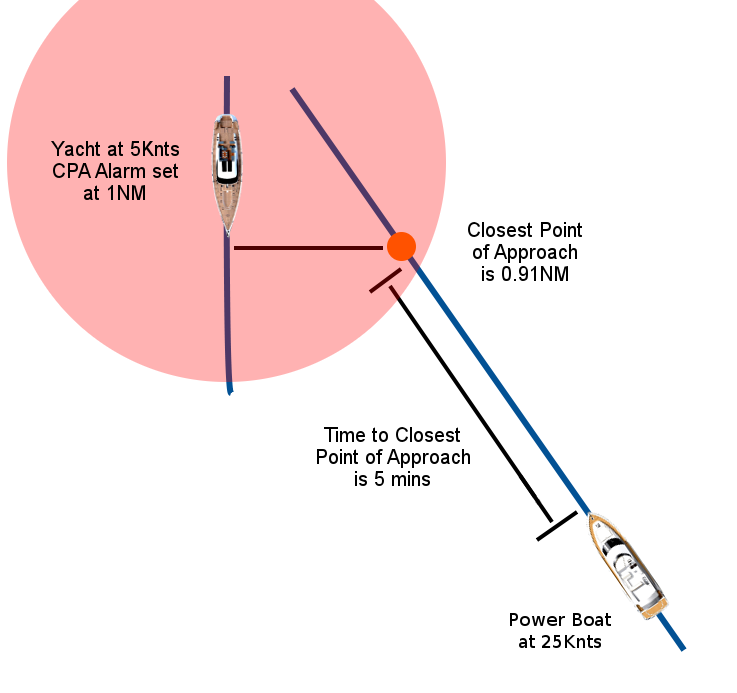One of the best features of the Automatic Identification System (AIS) is the ability on some chart plotters or navigation software to set alarms. These are able to warn you if and when you will get too close to another vessel. These collision avoidance alarms are a godsend. They can save you so much time and stress when navigating across a shipping lane or in bad weather.
CPA and TCPA Alarms Explained
There are basically two alarms; Closest Point of Approach (CPA) and Time to Closest Point of Approach (TCPA). Most systems will allow you to enter your own CPA and TCPA values for when the alarm will be triggered. As a result you need to decide how close you want to let other vessels get to you (CPA) before an alarm sounds. Also how much time you need to take avoiding action (TCPA). For instance, you might decide that 0.25NM is plenty close enough for large vessels to pass by you and you want to have 15 minutes notice so that you have time to take avoiding action and/or call them on the radio.
The image below shows the “imaginary” guard zone around the yacht that is set by the CPA alarm value (in this case 1NM). It also shows the distance the fast moving powerboat will be when the TCPA alarm goes off 5 minutes before the CPA situation occurs.
Prudent use of the CPA and TCPA alarms will definitely make your voyages safer, but do familiarise yourself with how your particular system works and know how to turn off the alarms when you are approaching busy harbour entrances and rivers, otherwise they will keep going off and drive you crazy !








Comments 5
Comments are closed.